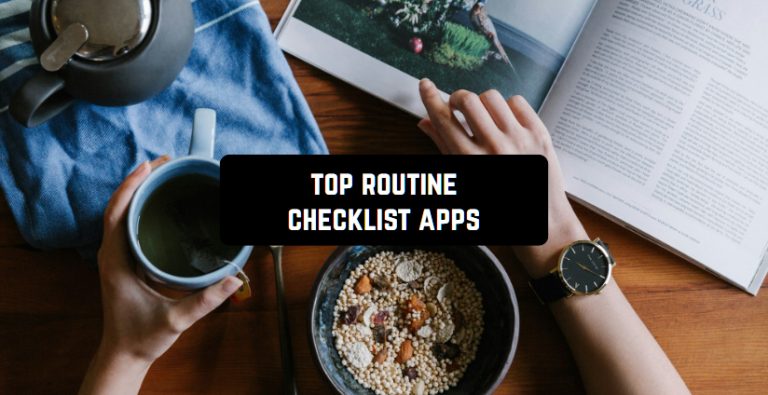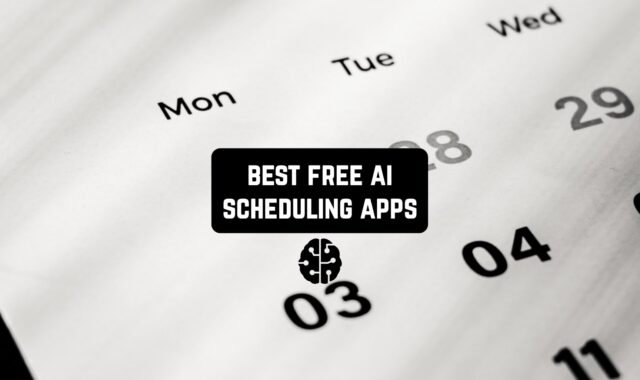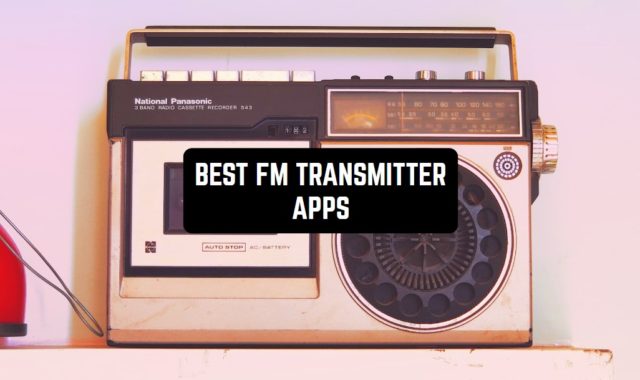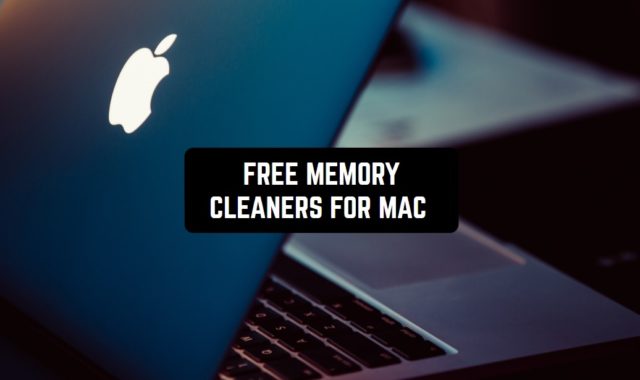Now, we’re all about streamlining routines and building momentum. Forget the snooze button and scattered sticky notes, it’s time to launch into productivity with the perfect routine checklist app! Here’s your guide to the top apps that will turn you into a productivity powerhouse!
Also, you might be interested in checking out the Free Daily Checklist. However, we’ll get back to our topic now, here we go!
TickTick
Looking for a checklist app that goes beyond the basics and can act as your routine’s mission control center? Look no further than TickTick: To Do List & Calendar.
Strengths:
- Feature Arsenal: TickTick is a powerhouse. It offers subtasks to break down complex routines, habit trackers to build consistency, and even a Pomodoro timer to keep you laser-focused during focused work periods.
- Calendar Integration: See your entire day at a glance. TickTick seamlessly integrates with your calendar, allowing you to visualize your routines alongside appointments and deadlines.
- Customization Captain: From priority levels to custom tags, TickTick lets you personalize your routine checklists to fit your unique workflow.
- Collaboration Corner: Need to manage a shared routine, like a family chore schedule? TickTick lets you share lists and collaborate with ease, making it ideal for group routines.
Possible Weaknesses:
- Learning Curve: With so many features, TickTick might have a steeper learning curve compared to simpler apps.
- Free vs. Premium: The free version has limitations on features like collaborative lists and reminders. Upgrading unlocks the full potential, but it might not be for everyone.




You may also like: Best Free AI Scheduling Apps
Todoist
Todoist has long been a champion in the task management world, and for good reason. Here’s a look at how it performs as a top routine checklist app:
Strengths:
- Simplicity Master: Todoist excels at keeping things clear and easy to use. The interface is intuitive, making it a breeze to create and manage your routine checklists.
- Project Powerhouse: Organize your routines with ease. Todoist allows you to create projects for different areas of your life, like “Morning Routine” or “Workday Essentials,” keeping your routines compartmentalized and focused.
- Recurring Rocket: No need to recreate the wheel every day. Todoist allows you to set recurring tasks, ensuring your core routines automatically populate on your daily checklist.
- Platform Party Animal: Access your routines from anywhere! Todoist seamlessly syncs across all your devices, whether it’s your phone, computer, or tablet. This ensures your routine stays with you, no matter where you are.
- Integration Oasis: Todoist plays well with others. It integrates with popular calendar and productivity apps, allowing you to create a powerful workflow ecosystem for your routines.
Possible Weaknesses:
- Limited Customization: While Todoist offers some customization options, it might not be as feature-rich as some competitors. For those who crave in-depth personalization, Todoist might feel a bit basic.
- Habit Tracking on Hold: Habit tracking, a key component of some routines, isn’t a core feature in the free version. Upgrading unlocks this functionality, but it’s an additional cost to consider.




Microsoft To Do
Microsoft To Do might not be the flashiest app on the launchpad, but for those already invested in the Microsoft ecosystem, it can be a powerful and convenient routine checklist companion. Here’s a closer look:
Strengths:
- Microsoft Marvel: To Do integrates seamlessly with other Microsoft products like Outlook and OneDrive. This creates a smooth workflow for those who rely heavily on Microsoft tools, allowing your routines to flow effortlessly alongside your calendar and files.
- Focus on the Fundamentals: To Do keeps things simple, focusing on the core functionalities of a checklist app. It allows you to create lists, add tasks, set due dates, and mark things complete.
- Smart Lists for the Busy Bee: Don’t get lost in the shuffle. To Do offers a “My Day” smart list that automatically suggests tasks based on your priorities and deadlines, keeping your most important routine items at the forefront.
- Cross-Platform Compatibility: Access your routines on the go! To Do syncs across all your devices, whether it’s your Windows PC, Android phone, or iPhone.
Possible Weaknesses:
- Feature Lite: Compared to some competitors, To Do offers a more basic feature set. If you crave extensive customization options, habit trackers, or project management features, you might find To Do a bit limited.
- Limited Collaboration: While great for individual routines, To Do doesn’t offer extensive collaboration features. This might not be ideal for managing shared routines, like family chores or team projects.




Habitica
Habitica takes a unique approach to routine checklists, transforming them into a quirky RPG experience. Here’s a breakdown of how it blasts off (or maybe crits?) as a top routine checklist app:
Strengths:
- Gamification Genius: Habitica turns your routines into an adventure! Completing tasks earns you experience points to level up your avatar, unlock new gear, and fight monsters. This gamification element can be incredibly motivating, especially for those who find traditional checklists dull.
- Habit Hacker: Habitica goes beyond simple to-dos. It allows you to track both positive habits (like exercising) and negative habits (like procrastination) with a fun reward/punishment system. Completing good habits rewards you in-game, while failing bad habits damages your character.
- Social Planet: Feeling the isolation of solo routines? Habitica lets you connect with friends and family. You can form parties, complete quests together, and motivate each other to stay on track with your routines.
- Customization Constellation: Habitica offers a surprising amount of customization. You can personalize your avatar, choose different gear and abilities, and even craft custom rewards to fit your motivational style.
Possible Weaknesses:
- Not for Everyone: The gamification aspect might not appeal to everyone. Some users might find it distracting or childish.
- Learning Curve: Habitica has a steeper learning curve compared to simpler checklist apps. Understanding the game mechanics and setting up your routines might take some time.
- Focus on Completion: While Habitica is great for habit building, it might not be the best choice for managing complex routines with deadlines or specific timeframes.




You may also like: Best Quality Control Inspection Apps
Routinery: Self care / Routine
Aptly named, Routinery focuses on the core concept of building and managing routines. Here’s a look at how it fares as a top routine checklist app in the competitive landscape:
Strengths:
- Routine Royalty: Routinery shines in its focus on building routines. You can create recurring checklists with specific days and times, allowing you to easily design and manage your daily, weekly, or even monthly routines.
- Habit Haven: Routinery seamlessly integrates habit tracking with routine management. You can track both positive and negative habits within your routines, making it easy to monitor progress and build lasting behavioral changes.
- Customization Captain: Routinery offers a good amount of customization. You can categorize routines, set reminders, and personalize the interface to fit your workflow preferences.
- Visual Wizard: Track your routine progress visually! Routinery offers charts and graphs to help you see your routine adherence over time, providing valuable insights and motivation.
Possible Weaknesses:
- Feature Focus: While strong in routine building, Routinery might lack some of the bells and whistles of competitor apps. It doesn’t offer features like project management or extensive collaboration tools.
- Limited Integration: Currently, Routinery doesn’t integrate with other productivity apps or calendars. This might be a drawback for users who rely heavily on integrated workflows.
- Focus on Simplicity: Some users might find Routinery’s interface a bit basic compared to more visually engaging apps.



Structured
Feeling overwhelmed by a jumble of tasks and appointments? Structured swoops in as a top routine checklist app designed to tame the chaos and bring structure to your daily grind. Here’s a breakdown of its strengths and weaknesses in the competitive landscape:
Strengths:
- Schedule Superhero: Structured excels at managing complex schedules. It allows you to create detailed daily routines with time blocking, color-coding tasks by category, and even integrating time zones for those with globetrotting routines.
- Visualization Vanguard: Structured is all about seeing the big picture. Its visual timeline provides a clear overview of your entire day, helping you visualize your routine and identify potential bottlenecks.
- Goal Getter: Structured isn’t just about to-dos; it helps you set and track goals. You can break down larger goals into smaller, actionable steps within your daily routine, keeping you motivated and focused on achieving your objectives.
- Focus on Flexibility: Structured offers flexibility within its structure. You can easily drag and drop tasks to adjust your schedule on the fly, adapting to unexpected changes without derailing your entire routine.
Possible Weaknesses:
- Learning Curve Launchpad: Structured’s powerful features might have a steeper learning curve compared to simpler checklist apps. Getting comfortable with time blocking and the visual interface might take some time.
- Minimalist on Features: While strong in schedule management, Structured doesn’t offer some features found in competitor apps. There are no built-in habit trackers or extensive collaboration functionalities.
- Focus on Daily Schedules: Structured is best suited for managing daily routines. It might not be ideal for those who need to manage complex projects with long-term task lists.




You may also like: Best Free Bullet Journal Apps
Any.do
We’ve all been there – scrambling to remember what’s next on our ever-growing to-do list. Any.do blasts off as a routine checklist app with a focus on keeping you on track, no matter how forgetful you might be. Here’s a look at how it performs in the busy world of routines:
Strengths:
- Memory Maestro: Any.do excels at reminding you about your routines. You can set location-based reminders that trigger when you arrive at a specific place, ensuring you never miss a task tied to a particular location.
- Smart Scheduling: Don’t overload yourself. Any.do’s “Any.do Moment” feature suggests tasks throughout the day based on your schedule and priorities, helping you avoid being overwhelmed and ensuring your routines stay manageable.
- Recurring Rocket: Any.do makes managing recurring routines a breeze. You can easily set tasks to repeat on specific days or at specific intervals, keeping your core routine elements on autopilot.
- Collaboration Corner: Need to manage shared routines with family or colleagues? Any.do allows you to create shared lists and assign tasks, making it ideal for group routines.
Possible Weaknesses:
- Feature Fairground: Any.do offers a wide range of features, which can be overwhelming for new users. It might take some time to learn the ropes and navigate all the functionalities.
- Free vs. Premium: The free version of Any.do has limitations on features like location-based reminders and recurring tasks. Upgrading unlocks the full potential, but it might not be for everyone.
- Customization Constellation: While Any.do offers some customization options, it might not be as in-depth as some competitor apps when it comes to personalizing your routine checklists.




Google Tasks
Google Tasks might not be the flashiest spaceship in the routine management galaxy, but for those already well-established in the Google ecosystem, it can be a convenient and familiar pit stop for managing daily routines. Here’s a closer look at how it performs as a top routine checklist app:
Strengths:
- Google Galaxy Compatibility: Tasks seamlessly integrates with other Google products like Gmail and Calendar. This creates a smooth workflow for those who heavily rely on Google tools, allowing your routines to exist alongside your emails and appointments.
- Simplicity Starfighter: Tasks is all about keeping things straightforward. The interface is clean and user-friendly, making it easy to create, manage, and check off tasks within your routines.
- Free and Accessible: Being a Google product, Tasks is completely free and readily available on most devices. This makes it an accessible option for anyone with a Google account.
Possible Weaknesses:
- Feature Famine: Compared to feature-rich competitors, Tasks offers a bare-bones experience. There’s no subtasks, habit tracking, or project management functionalities.
- Limited Customization: Tasks allows you to create basic checklists, but customization options are minimal. You can’t categorize routines or personalize the interface to a great extent.




Ample Note
Ample Note takes a unique approach to routine management, offering a comprehensive workspace that goes beyond checklists. Here’s a breakdown of how it performs as a top routine checklist app:
Strengths:
- Routine HQ: Ample Note isn’t just about checklists; it’s a central hub for everything routine-related. You can create checklists, set tasks, schedule events in your calendar, and even take notes – all within the same app. This consolidated approach can be a dream come true for multitaskers who manage complex routines with interwoven elements.
- Customization Constellation: Ample Note offers a high degree of customization. You can create different workspaces for different areas of your life, categorize tasks and notes, and personalize the interface to fit your workflow preferences.
- Bidirectional Blastoff: Ample Note’s “backlinking” feature allows you to connect notes and tasks. This lets you see how different elements of your routine relate to each other, providing valuable insights and fostering a more holistic approach to routine management.
Possible Weaknesses:
- Learning Curve Launchpad: Ample Note’s comprehensive feature set can be overwhelming for new users. It might take some time to get comfortable navigating the app and utilizing all its functionalities.
- Focus on Multitasking: While great for complex routines, Ample Note might feel like overkill for those who simply need a basic checklist app.
- Free vs. Premium: The free version of Ample Note has limitations on features like storage space and collaboration tools. Upgrading unlocks the full potential, but it might not be for everyone.




You may also like: Best Free ADHD Apps
Focus Keeper
While Focus Keeper might not be your traditional checklist app, it deserves a spot in the routine management conversation thanks to its unique approach. Here’s a look at how it performs as a companion for focused routines:
Strengths:
- Timeboxing Twister: Focus Keeper goes beyond checklists. It utilizes the Pomodoro Technique, offering customizable timeboxing features. Set work intervals (sprints) and short breaks, creating a structured routine that keeps you focused and energized throughout your day.
- Focus Force Field: Focus Keeper helps you eliminate distractions. During work sprints, the app can block specific websites and notifications, allowing you to stay laser-focused on your routine tasks.
- Habit Hacker: Track your progress over time! Focus Keeper provides analytics on your completed work sessions, allowing you to monitor your focus habits and identify areas for improvement.
- Customization Captain: Focus Keeper offers some customization options. You can adjust work and break intervals, set notification sounds, and even choose calming background music to enhance your focus during work sprints.
Possible Weaknesses:
- Checklist Conundrum: Focus Keeper isn’t a traditional checklist app. While you can set task titles for each work session, it doesn’t offer features like subtasks or recurring checklists.
- Focus on Focus: Focus Keeper excels at timeboxing and boosting focus, but it might not be suitable for managing complex routines that require detailed checklists and task organization.
- Limited Collaboration: This app is designed for individual focus. It doesn’t offer collaboration features, making it unsuitable for managing shared routines with others.










